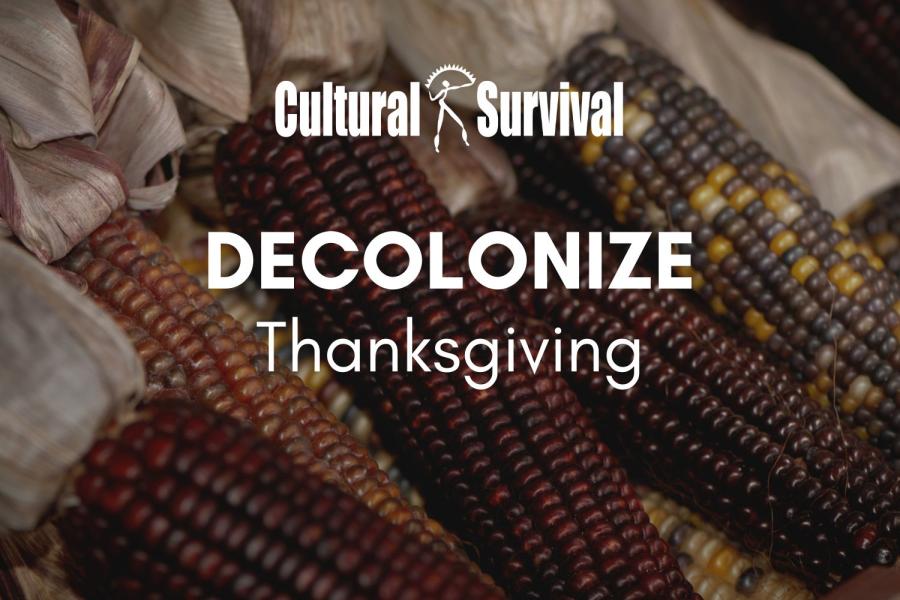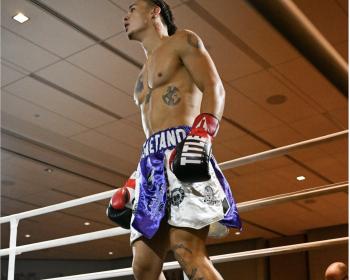
By Tia-Alexi Roberts (Narragansett, CS Staff)
November 8, 2024, marks the 46th anniversary of the enactment of the Indian Child Welfare Act (ICWA). The legislation was a direct response to the large numbers of Native children who were separated from their families by state child welfare and private adoption agencies, many of whom were displaced by the Indian Adoption Project (1958-1967), a federal program that sought to place Native children with white families under the auspices of child welfare. These practices often led to the unjust separation of Native children from their homes, causing generational and intergenerational trauma in both individual families and entire Native communities. Studies done in the 1970s at the height of these forced separations revealed that Native children were being removed from their homes at a significantly higher rate than non-Native children; it was estimated that 25-35 percent of all Native children were being placed in non-Native foster homes or institutions, even when there were no immediate safety concerns. This widespread removal was a form of forced assimilation, as many children were placed in homes that did not respect or recognize their Indigenous identity.
Residential schools also played a significant role in the creation of ICWA. For over a century, these schools forcibly removed Native children from their families and communities as part of efforts to assimilate them into Euro-American culture. Designed to erase Native identities, residential schools forbade Indigenous languages, practices, and beliefs, leaving generations of children disconnected from their culture. In response to this systemic violence, ICWA was enacted to prevent further harm to Native families. The law requires that child welfare agencies give preference to placing Native children with their extended families, Tribal communities, or other Native homes. This policy is supposed to ensure that Native children remain connected to their culture, heritage, and communities, addressing the longstanding history of forced family separations and cultural disconnect.
On June 15, 2023, the U.S. Supreme Court affirmed the constitutionality of the Indian Child Welfare Act in a 7-2 decision in the Haaland v. Brackeen case, leaving the entirety of ICWA intact. The decision reaffirmed Tribal sovereignty and was a historic win for Tribes. (Read more about the aftermath of the historic ruling.)
Photo by Tia-Alexi Roberts.
Margaret Tarrant is a proud member of the Three Affiliated Tribes (Mandan, Hidatsa, and Arikara) and belongs to the Flint Knife Clan. Raised with a deep connection to her culture, Tarrant’s family comes from Mandaree, North Dakota. Her father’s roots trace back to Irish ancestry in New York and New Jersey. When Tarrant introduces herself, she honors her mother and grandmother, whom she says “come out dancing” with her. We recently spoke with Tarrant about her personal experiences with ICWA. As a Native mother who has directly navigated the child welfare system, she offers insight into the complexities and challenges of ICWA in practice.
Cultural Survival: What was your experience with ICWA?
Margaret Tarrant: As a Native mom, I lost my children to the state in 2015. I thought ICWA would help me because I am an enrolled citizen. [But] when I called my Tribe, they were unable to help me because my children were not enrolled. My children's father had them enrolled in his Tribe, and he was able to get help from ICWA. He was also my abuser, so I do have a lot of experience with ICWA.
CS: What are the key protections that ICWA offers, and what could be done to help improve the welfare of Native families?
MT: ICWA helped me in one way: they helped keep my kids with their grandmother on their father’s side so that they were able to stay in a Native home. I think that was really beneficial to my children, especially since they did not have to go into a stranger’s home. So, I think there are some benefits to ICWA. That was a great protection that was helpful in my case. I think that ICWA would benefit by allowing more families to have first options as foster care providers, and I also think that we should take a look at background checks because I believe that the social justice system is biased, and we have the data here in Alaska to prove it.
The largest population in Alaska jails is Native. I believe there is a biased social justice system that creates a lot of people like myself who have a negative background. They don't allow us to be foster parents, even though we’ve changed our lives. Some of us are in recovery, and we need to start looking at those people that could be providers for their families and start overlooking backgrounds that aren't violent, that would be able to provide stable homes. Our measurements for the ability to do so are skewed.
CS: How does ICWA ensure that Native children maintain cultural connections when placed in foster care or adoption?
MT: I know from my experience that by allowing families to be foster parents, those children, like my kids, are more exposed to cultural activities through their grandparents, aunts, or uncles. In Alaska, I have a friend who is an ICWA worker, and when we’ve tried to bring Elders in to do cultural work, there's been a lot of opposition to that. I don't know how conducive child services are to providing that kind of support. I think that we need to be building or creating those ‘third spaces’ for foster families to come to and be able to participate and practice their own culture, even though they're in the foster care system.
CS: Should there be more Native representation in the child services field?
MT: I would love to see more Native representation in the child services field. Most of us, if not all of us, because of boarding schools, have the experience and knowledge of what it's like to be a child taken away. I think we need to start working with our young adults and people coming out of foster care systems to help create those spaces because they know what they needed when they were in that space. I’ve been homeless before with my kids, and being homeless, you feel like nobody cares about you.
CS: What would be the potential impact on Native mothers if ICWA were to be weakened or overturned?
MT: I think it would be absolutely devastating if ICWA was overturned. I know “‘60s scoop” survivors who were friends of my mothers, and there's so much pain in having to reconnect. That pain gets passed down to our children in a lot of ways, and if we don't have those safe spaces for our children to go to because of ICWA, like my kids had with their grandmother, I can't even imagine what that would be like for our community. It would be like a boarding school era all over again.
CS: What challenges do Native mothers face in the child welfare system, and how could ICWA better help to address these issues?
MT: I don't think there are enough resources for the amount of children that are in the system right now. Our children are being put under a microscope in schools and there's more children being taken away from homes. I think that if ICWA worked on prevention instead of coming to the rescue after the fact, it would be helpful. How do we prevent mothers from losing their kids in the first place? I know sometimes it's up to the moms like myself. I'm in recovery and I only have two years sober. It's taken me almost 10 years to get two years, but we need to have more compassion. A lot of our moms are navigating their own trauma, which mostly stems from boarding school trauma. It's passed down through the generations.
CS: How important is it for Native mothers to be aware of their parental rights?
MT: It's essential to know your rights as a mother because when you don't know your rights, you don't understand that you have the ability to assert those rights. I didn't understand a lot until I got into the system myself. I really didn't understand that when your kids are taken away from you you're penalized and looked at as a bad mother. And it's not that I was a bad mother; I was an alcoholic and I was working through my own trauma at the time. I think that if we can help mothers work through [their trauma] before they become mothers that it would be better. I wish I had worked through all of my own trauma before I had kids, but sometimes you don't realize what's there until you go through it. Having to face yourself is really hard, and I don't think there is enough support for Native mothers in child services. I don't think these agencies were ever set up to be helpful for us and they need to consider what their place in the world is. Are they there to help us, or are they there to take away our children? If you're looking at data without bias, our children are being taken away at higher rates than any other race. What are the agencies doing? They are not helping us. Before getting involved with them I trusted the child services, but I don't trust them today.
CS: What advice would you give to other Native mothers who may be navigating the child welfare system or facing issues related to ICWA?
MT: I am very grateful for the mothers and grandmothers here in Alaska who always told me that my kids would come back to me. The advice that I give to my friends is to go to treatment like they are being told to do, because if you don't do what they say, they will not give you your kids back. That's the advice I give them. I tell them to do what their case managers are telling them to do because there's no other way to get their kids back. I know because I didn't get mine back.


